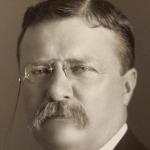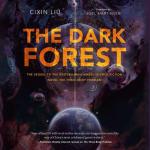Dear Thoughtful Pastor: Because one objects to certain aspects of Scripture, how does or can one believe the whole word of God?’’ ~Non-objectionable
Dear Thoughtful Pastor: The Bible has been accepted as the inerrant Word of God for centuries. By what authority do some self-professed Christians as well as preachers of the gospel now ignore and contradict the Bible in regard to what is says in specific and unambiguous language in regard to homosexual behavior? This same question can be asked in regard to the existence of Hell, the deity of Christ, ad infinitum. ~Non-contradictory
Dear Nons: Two different people, two different questions, same issue: belief and use of the Bible.
And what a tangled mess we have here. What do we do with this book?
Well, actually books. Sixty-six of them for Protestants, 73 for Roman Catholics. See? We have problems from the get-go here. Which Bible?
A Brief History of the Texts
Here are a few things everyone who seeks to believe the Bible needs to know.
The original manuscripts of the Greek texts, of which none exists today, were written without spaces between words or any punctuation marks. Every period, comma, and paragraph break are editorial choices. Chapter breaks and verse numbering were all added later to make study easier. Chapter headings come from interpretative choices and decisions made by translators.
The original manuscripts of the Hebrew tests, none of which exists today, had no vowels of any kind. Vowel markings were added by copyists around the 10th century CE.
Our texts were written two to four thousand years ago in cultures totally unlike our own and in languages that have changed radically since then, just as the English language continually changes.
Add to that the very nature of translation. Texts can’t be translated word for word and make sense. Sentence order in both Greek and Hebrew differ considerably from sentence order in English. Plus, there are words in the original texts whose meanings simply aren’t clear, putting another interpretive layer onto what we currently read as the Bible.
There are also lots of different types of literature contained in the Bible. Much is poetry–notoriously difficult to translate and still hold onto the original cadences and meanings. Others offer books of laws as the early Hebrews sought to create a nation out of a group of people functioned primarily out of clan loyalty.
Some books read like novels, giving us truth in story. Others castigate people for their many wanderings away from God and warn them of future disaster without present repentance. Others are letters, written to address specific situations. Reading them is like listening to someone talk on the phone: we hear (read) what one person says and can make only an educated guess about the other half of the conversation.
Each type of literature demands different ways of reading and understanding in order to properly honor the text and the context in which these words were written. We need to respect the fact that these words are notoriously difficult to understand and pull together in a comprehensive whole.
For most of human history, very few actually read the Bible. Literacy was not particularly widespread and tended to congregate around religious orders. Manuscripts had to be copied by hand, each massively expensive. Gutenberg and his moveable type printing press changed all that. For the first time in human history, this great book became available to the masses.
Not long after that, the first split in the Western church came spurred by Martin Luther, a learned Roman Catholic monk who could not reconcile what he read in the Bible with many of the church practices of the day.
Since then, the Western church has splintered into untold numbers of denominations and independent groups, all reading the same texts held sacred and all interpreting them differently.
The advent of the Internet has exacerbated the process. In time, I suspect we shall just all have our own little religions, each of us sure that we are rightly handling the word of God.
Houston, We Have a Problem
So if you, dear readers, are still with me, I say, “Houston, we have a problem.”
First, our translations all contain interpretative choices. They are not and cannot be totally objective.
Second, what seems perfectly clear to one person may be muddied beyond belief to another. You and I can read the same texts and walk away with deeply divergent opinions of what they say and mean, especially in trying to seek applicability to a world radically different in understanding from the times in which the words were written.
Third, the word “inerrancy” is particularly problematic, unfortunately, and is a fairly recent concept when applied to the Bible. How does one apply a concept of something without error to poetry, the genre which dominates much of the earliest writings?
Poetry is by its nature metaphorical, pulls upon the imagination to see things in very different ways. Poetry, with its rhythms and repetitions and plays on words and letters, is also far easier to memorize than prose. Poetry is a gift to savor, not a theorem to take apart and examine for extreme accuracy.
So, how do I believe it and read the Bible?
- With deepest respect, acknowledging that much of it will always be a mystery to me but it is worth reading and seeking to understand.
- With deepest humility, knowing that I might be wrong in my interpretations.
- With deepest hope, acknowledging that these words have been written to help open the doors to the Holy One.
- With deepest love for others, seeking to always use the Scriptures as a way to offer light and goodness, not to beat people up or condemn them to utter and irrevocable separation from God.
It took me a long, long time to figure that out.
Again, I remind you: Our Bible was written two to four thousand years ago in cultures totally unlike our own and in languages that have changed radically since then. Handle it with care.
All questions are welcome. You can email your questions to thoughtfulpastor@gmail.com, “like” her Facebook Page, use this form to send them or message her on Twitter. You can also send a question through conventional mail to the following address: Thoughtful Pastor, 314 E. Hickory St., Denton, TX, 76202.
[Note: a version of this column will appear in the Friday, September 25, 2015 print and online editions of The Denton Record Chronicle.]
















